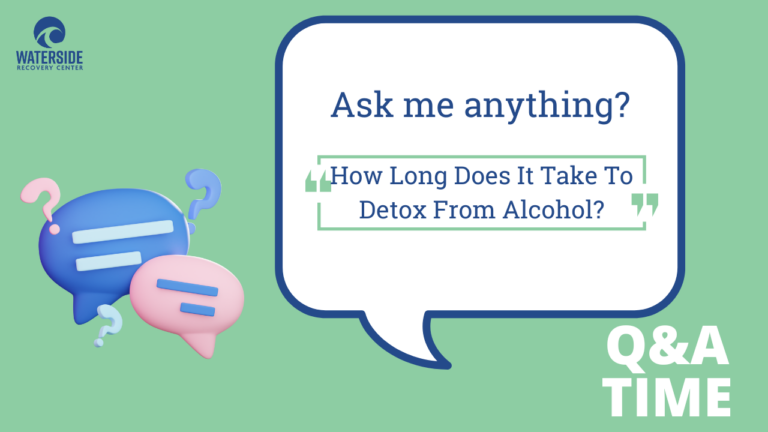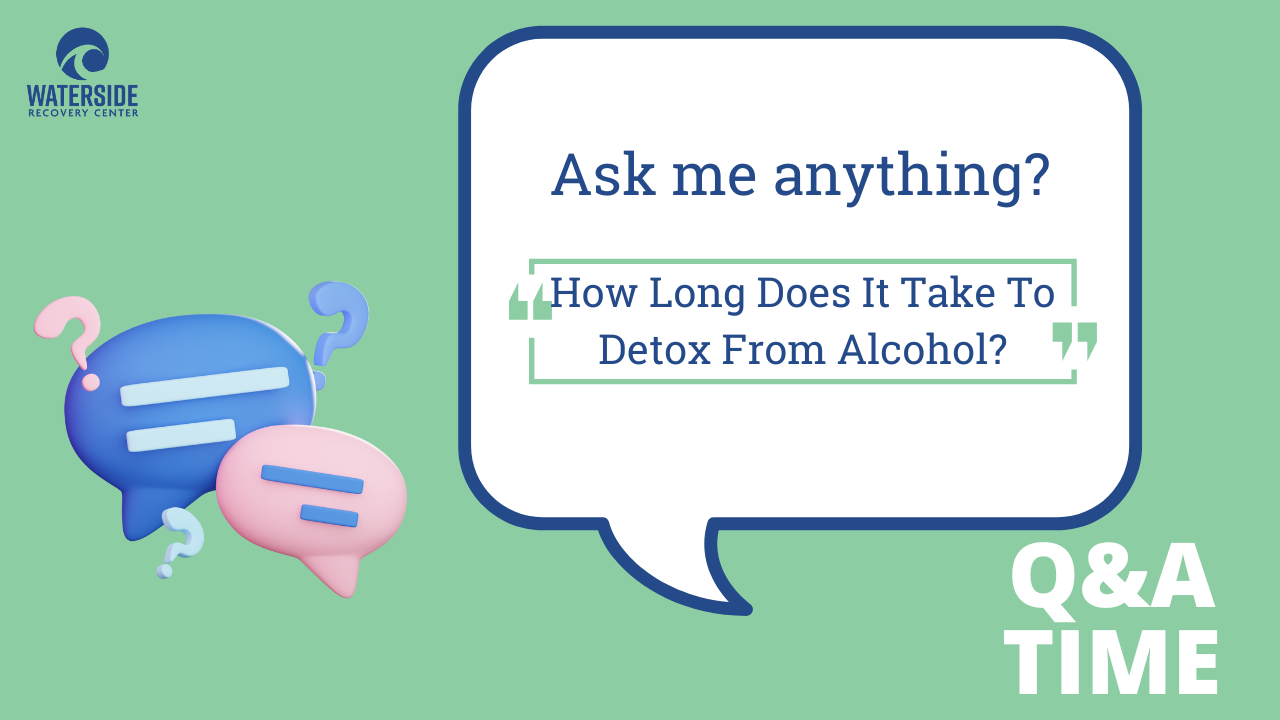
How Long Does It Take to Detox from Alcohol? A Comprehensive Guide
Alcohol detoxification is the process of removing alcohol from the body. It is the first step in overcoming alcohol addiction and can be a challenging process. The duration of alcohol detoxification can vary depending on several factors, including the severity of addiction, the type of alcohol consumed, and the individual’s overall health.
The process of detoxification can be different for each individual, and the length of time it takes to detox from alcohol can vary. In general, the initial withdrawal symptoms can begin within hours of the last drink and can last for several days. The most severe symptoms typically occur within the first few days and can include seizures, hallucinations, and delirium tremens. However, the duration of alcohol detoxification can be longer for individuals who have been heavy drinkers for an extended period or who have a history of alcohol withdrawal symptoms.
Understanding Alcohol Detoxification
The Process of Alcohol Detox
Alcohol detoxification is the process of removing alcohol from the body. It is the first step in treating alcohol addiction. The process of alcohol detoxification can be dangerous and should be done under medical supervision.
The process of alcohol detoxification involves several stages. The first stage is the evaluation stage, where the patient is evaluated for any medical conditions that may require immediate attention. The second stage is the stabilization stage, where the patient is stabilized and monitored for any withdrawal symptoms. The third stage is the treatment stage, where the patient is treated for any underlying medical conditions or mental health issues that may have contributed to their alcohol addiction.
Factors Influencing Detox Duration
The duration of alcohol detoxification varies from person to person and depends on several factors. Some of the factors that influence detox duration include:
- The amount of alcohol consumed
- The duration of alcohol use
- The frequency of alcohol use
- The individual’s age, sex, and overall health
- The presence of any underlying medical or mental health conditions
In general, the detox process can take anywhere from a few days to several weeks. However, it is important to note that detox is just the first step in treating alcohol addiction. Long-term treatment and support are necessary for a successful recovery.
Overall, understanding the process and factors influencing alcohol detoxification can help individuals make informed decisions about seeking treatment for alcohol addiction.
Stages of Alcohol Withdrawal
Alcohol withdrawal syndrome (AWS) occurs when a person who has been drinking heavily for a prolonged period suddenly stops or reduces their alcohol consumption. The severity and duration of alcohol withdrawal symptoms can vary depending on several factors, including the amount and duration of alcohol use, age, sex, and overall health.
Early Withdrawal Symptoms
The early stage of alcohol withdrawal typically begins 6-12 hours after the last drink. Early withdrawal symptoms can include:
- Anxiety
- Insomnia
- Nausea
- Vomiting
- Tremors
- Sweating
- Rapid heartbeat
- Headache
- Irritability
- Fatigue
- Depression
- Loss of appetite
Peak Withdrawal Symptoms
The peak stage of alcohol withdrawal usually occurs 24-72 hours after the last drink. Peak withdrawal symptoms can include:
- Seizures
- Delirium tremens (DTs)
- Hallucinations
- Agitation
- Confusion
- Fever
- High blood pressure
- Rapid breathing
- Irregular heartbeat
Late Withdrawal Symptoms
The late stage of alcohol withdrawal can last for weeks or months after the last drink. Late withdrawal symptoms can include:
- Anxiety
- Depression
- Insomnia
- Fatigue
- Irritability
- Difficulty concentrating
- Mood swings
- Reduced energy levels
It is important to note that alcohol withdrawal can be life-threatening, especially in cases of severe alcohol dependence. Therefore, it is recommended that individuals seek professional medical help when attempting to detox from alcohol.
Medical Interventions and Support
Medication-Assisted Treatment
Medication-assisted treatment (MAT) involves the use of medications to help manage withdrawal symptoms and cravings during the detoxification process. These medications can be prescribed by a medical professional and are often used in combination with psychological and social support. The most common medications used for alcohol detoxification include benzodiazepines, antipsychotics, and anticonvulsants.
Benzodiazepines are a type of medication that can help manage anxiety and seizures during alcohol detoxification. Antipsychotics can help manage delirium tremens, a severe form of alcohol withdrawal that can be life-threatening. Anticonvulsants can also be used to manage seizures during alcohol detoxification.
It is important to note that medication-assisted treatment should only be used under the supervision of a medical professional. These medications can be addictive and can have serious side effects if not used properly.
Psychological and Social Support
Psychological and social support can also be an important part of alcohol detoxification. This type of support can help individuals manage the emotional and psychological effects of alcohol withdrawal and can provide a supportive environment for recovery.
Counseling and therapy can provide individuals with the tools and strategies they need to manage cravings and avoid relapse. Support groups, such as Alcoholics Anonymous, can provide individuals with a sense of community and support during the recovery process.
Overall, medical interventions and support can be an important part of alcohol detoxification. It is important to work with a medical professional to determine the best course of treatment for individual needs and to ensure that detoxification is done safely and effectively.
Recovery and Long-Term Considerations
After completing the detox process, the recovery phase begins. It is essential to maintain sobriety and avoid relapse. The length of recovery varies from person to person and depends on several factors, including the severity of alcohol addiction, the length of time the person has been drinking, and the individual’s overall health.
To ensure long-term sobriety, it is recommended that individuals seek support from a healthcare professional, counselor, or support group. They can provide guidance and help develop a plan for maintaining sobriety. The twelve steps of Alcoholics Anonymous have proven to be a very successful form of treatment for many.
In addition to seeking support, lifestyle changes can also aid in recovery. A healthy diet, regular exercise, and stress-reducing activities such as meditation or yoga can help individuals manage their cravings and reduce the risk of relapse.
It is also crucial to address any underlying mental health conditions that may have contributed to alcohol addiction. Dual diagnosis treatment, which addresses both addiction and mental health issues, can improve the chances of long-term recovery.
Overall, recovery from alcohol addiction is a lifelong process that requires commitment and dedication. With the right support and lifestyle changes, individuals can successfully maintain sobriety and improve their overall health and well-being.
At Waterside Recovery Centers we pride ourselves on providing the top addiction treatment in Massachusetts. With a range of evidence-based, client-focused and individualized treatment offerings, we are able to provide the ideal support for those seeking recovery from substance addiction. Please feel free to reach out to our help line at anytime.
(866)671-8620





